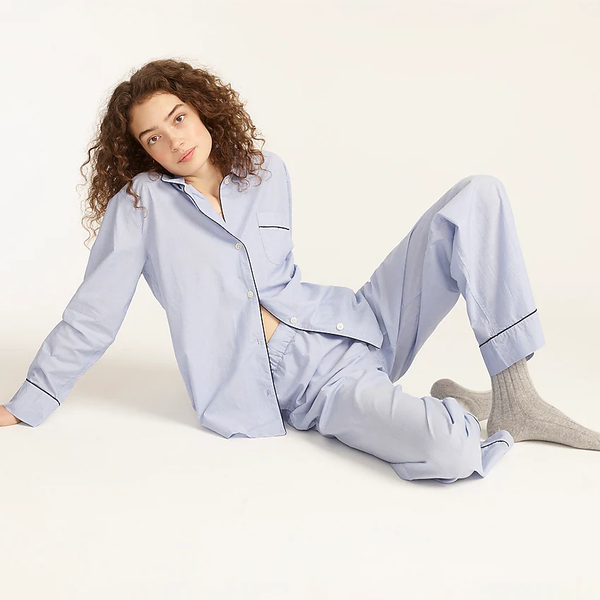
In this article
A weight bench serves as the station to perform many basic weight-training exercises, like bench presses and dumbbell and core work, to name a few. Having one at home saves you from playing musical chairs (benches?) with ten other sweaty gym patrons, limiting your actual time spent working out. And owning the right home-gym equipment is crucial to making sure your routine is as safe and effective as possible — especially when weights are involved. As a frequent gymgoer who has lifted weights on all kinds of benches, I’ve learned that a good weight bench should have a solid construction (every bench on this list has a steel frame) and a firm, supportive cushion — not a plush one that will sink in when you sit or lie down on your back. Here, I’ve rounded up the best ones available according to weight-lifting coaches, personal trainers, my personal testing at various gyms and workout spaces, and other experts who have logged countless workouts on a weight bench.
What we’re looking for
Weight
Much like how a good pair of weightlifting shoes provides a stable base to push from, a good weight bench functions as a kind of anchor. “Whether you’re using it for barbell work or dumbbell work, you want something stable enough to not move around or collapse on you while slinging weights,” says Paolo Galang, a certified Olympic weightlifting coach. That sturdiness comes partly from the construction of the bench, and partly from its own weight. Generally, the heavier the weight bench, the more stability it can provide — but more weight might make it harder to assemble. Dean Pohlman, a yoga and fitness instructor, says if you’re shopping for an adjustable bench, you should look for one that’s 50 pounds or heavier. A bench’s weight capacity, or the maximum amount of weight (user plus weights) it can support, is not as crucial to look at. Most weight benches available for home use (including the ones in this list) have capacities from around 600 to 1,000 pounds, which is well above what the average person will be reaching with dumbbells or a barbell.
Angle adjustability
There are three main types of benches: flat, adjustable incline, and adjustable incline-decline. Flat benches have a single cushion and won’t have an adjustable back or seat, while the other two types will have one or both adjustments. If you’re wondering which kind of bench to get, consider the types of workouts you’ll be doing. “Some folks are looking to use it for just a bench press, in which case a flat bench is all you need, while other folks are looking for something with more versatility — then you might want to consider something with adjustments,” says Philip Doblosky, a sales representative at Johnson Fitness & Wellness.
Storage type
Weight benches can be permanent fixtures in your home gym setup, or they can be as portable and stowable as some gym mats. It depends what your priorities are. There are weight benches that fold up like an ironing board, roll around on wheels, and have carrying handles like a hand truck, while others are not designed to be taken apart often.
Best overall weight bench
Weight: 125 pounds | Angle adjustability: 10 back adjustments (0 to 85 degrees), 3 seat adjustments (0 to 30 degrees) | Storage type: Two wheels and pull handle, stores upright
If you’re looking for a bench to invest in, look no further than the Adjustable 3.0 from Rogue Fitness, a brand that makes workout equipment we’ve written about and recommended before, from trainer-favorite dumbbells and jump ropes to weightlifting belts and squat racks. Two experts I spoke to recommended the 3.0 as the best weight bench and noted its outstanding quality and bombproof-steel construction. “We’ve had Rogue Fitness benches for ten-plus years, and they’re never going to break,” says Colin Gray, the general manager and master trainer at EVF Performance. With frequent use, especially at a public gym, Gray says they’ve seen scuffs on the benches’ upholstery, but otherwise they’re sturdy. The Adjustable 3.0’s ten back-adjustment positions and three seat positions make it a versatile bench that can be used for multiple exercises. One standout feature is the less-than-one-inch gap between the seat and back pads, which provides more support for the user than benches with a wider gap between them. Rogue also offers an upgraded polyurethane pad (the vinyl one is standard). The 3.0 has two wheels toward the headrest and a pull handle near your feet, so you can move it around your gym space like a dolly. It also stores upright, if you’re looking to get it out of the way. I’ve used the bench 3.0 myself (at Vital Climbing Gym in Brooklyn), and I like the firm cushion that still feels grippy even when my clothes are sweaty or after being wiped down with a Clorox wipe.
Best (less expensive) overall
Weight: 40 pounds | Angle adjustability: 14 back adjustments (including decline), no seat adjustments | Storage type: Does not fold for storage
If you’re looking for a basic weight bench that won’t break the bank, this sub-$100 option comes recommended by Chris Chung, a running-and-fitness-content creator, who’s been using it for at-home strength workouts for three years. When shopping for a bench, one of the things he was looking for was the ability to change the angles on the bench, both incline and decline. (Chung bought an out-of-stock version of this bench that included an angled seat adjustment, which this bench doesn’t have.) Chung has used it for a variety of exercises, like chest presses, rows, and box squats. “I can rest my foot on it for Bulgarian split squats. I can do crunches and bench sit-ups on it, too,” he says. “I didn’t want to invest in a professional bench that was upward of $500. But this one has lasted me three years, so I’d say it was a good investment.” Chung adds that its frame doesn’t wobble, even on a more unstable surface like his carpet.
Best (less expensive) overall with seat adjustment
Weight: 49 pounds | Angle adjustability: 7 back adjustments (including decline), 3 seat adjustments | Storage type: Two wheels and grab handle, does not fold for storage
Consider this bench from Deracy if you’re seeking a more affordable bench that has both incline and decline adjustments, as well as an angled seat adjustment for decline workouts. When I asked yoga and fitness instructor Dean Pohlman about what to look for in a good weight bench, he pointed to his Deracy model for three main criteria: “It’s adjustable, stays in place, and it’s well made.” At 49 inches long, the Deracy overall pad length is a few inches shorter than the Rogue and Rep Fitness bench below (at 56.5 inches and 51 inches respectively), so keep this in mind if you’re looking for a longer pad length.
Best incline-decline weight bench
Weight: 85 pounds | Angle adjustability: 8 back adjustments (–20 to 85 degrees), 5 seat adjustments (0 to 20 degrees) | Storage type: Two wheels and grab handle, does not fold for storage
Rep Fitness is a well-known maker of high-quality gym equipment, and this is the model we’d recommend to most folks who are looking for a quality weight bench with a variety of features. “The Rep Fitness adjustable bench is a good sturdy alternative that’s about half the cost of the higher end brands,” says Galang. It comes with fewer back adjustments than the Rogue Fitness Adjustable Bench, but it does have one more seat adjustment, plus the ability to decline and two foam roller pads for securing your feet — features that the Rogue model doesn’t have. The newer version of the AB-3000 — the 2.0 — adds one more back adjustment to the seven angles available on the older model, plus rubber covers on the metal bases and a squared-off back pad that lends more back support. I’ve done tough dumbbell workouts on this Rep Fitness bench, and it feels similar to the Rogue Fitness bench in terms of sturdiness and pad feel, but the roller pads were the differentiating factor — I could use them to anchor my feet for ab workouts like sit-ups and medicine-ball decline sit-ups.
Best flat bench
Weight: 18 pounds | Angle adjustability: Flat | Storage type: No wheels, does not fold for storage
This no-frills weight bench is all you need for simple workouts like some dumbbell or core exercises. If you’re not planning on using any incline-decline adjustments, this is also a good bench to pair with a rack — like this one that contributor Jason Stewart incorporated into his home-gym setup — for barbell exercises. The Marcy bench doesn’t have any fancy storage features, but at 18 pounds and 41 inches long, it’s relatively easy to pick up and move around.
Best foldable bench
Weight: 28.5 pounds | Angle adjustability: 7 back adjustments, 3 seat adjustments | Storage type: No wheels, folds for storage
While Pohlman recommends adjustable benches that are 50 pounds or heavier, I think this 28-pound bench is the ideal solution for folks who are looking to save space in their home-gym setup and do workouts with lighter weights. It compresses down, sandwich-style, to 30-by-15-by-9 inches, which makes it easy to store in the corner of a garage or room. This Flybird bench might not have the deluxe features that a Rep or Rogue fitness bench has, but its stowability (and portability) makes it a breeze to set up — and that makes shipping to your home easier, too.
Some dumbbells to add to your home gym
Our experts
• Chris Chung, running and fitness-content creator
• Phillip Doblosky, sales representative at Johnson Fitness & Wellness
• Paolo Galang, certified Olympic weightlifting coach
• Colin Gray, general manager and master trainer at EVF Performance
• Dean Pohlman, yoga instructor and founder of Man Flow Yoga
The Strategist is designed to surface the most useful, expert recommendations for things to buy across the vast e-commerce landscape. Some of our latest conquests include the best acne treatments, rolling luggage, pillows for side sleepers, natural anxiety remedies, and bath towels. We update links when possible, but note that deals can expire and all prices are subject to change.
Every editorial product is independently selected. If you buy something through our links, New York may earn an affiliate commission.














